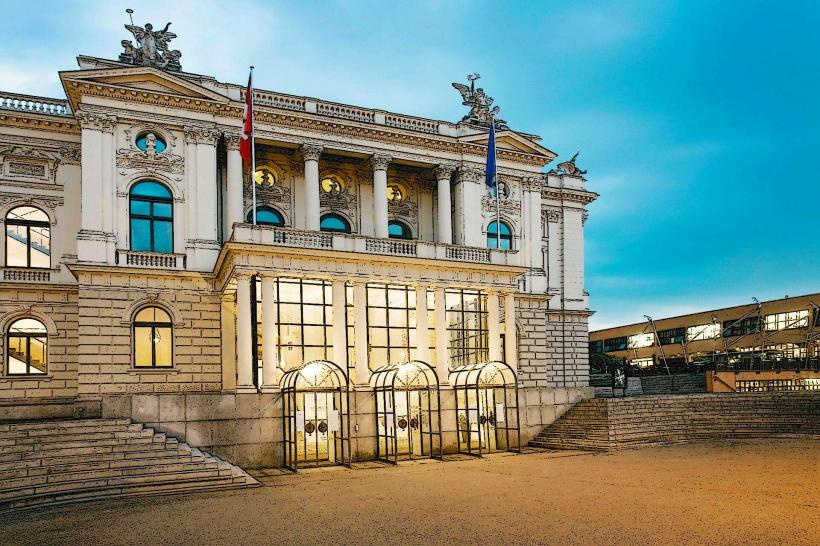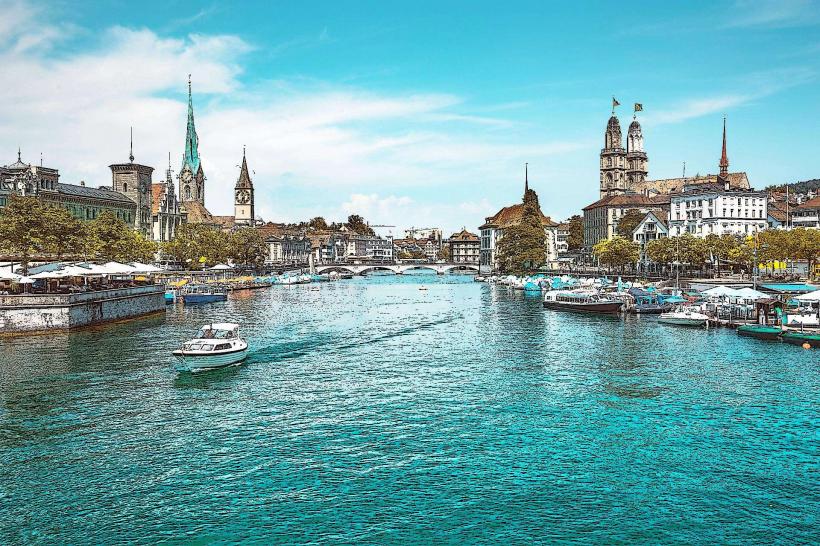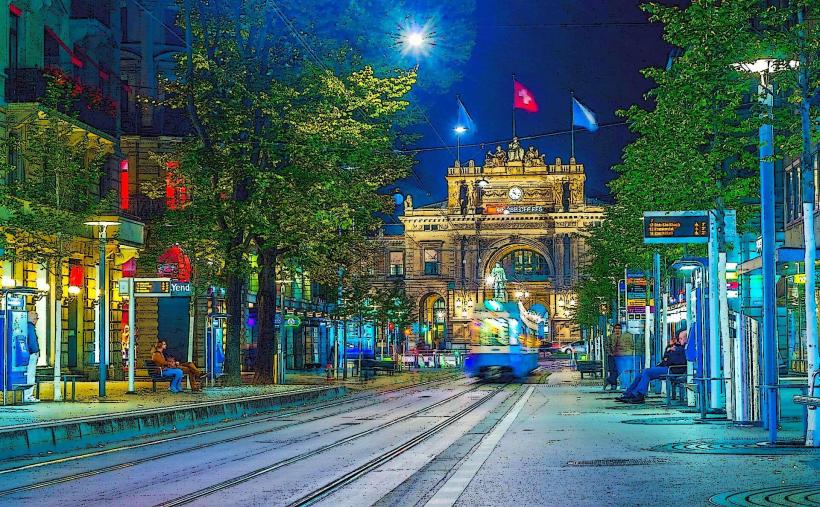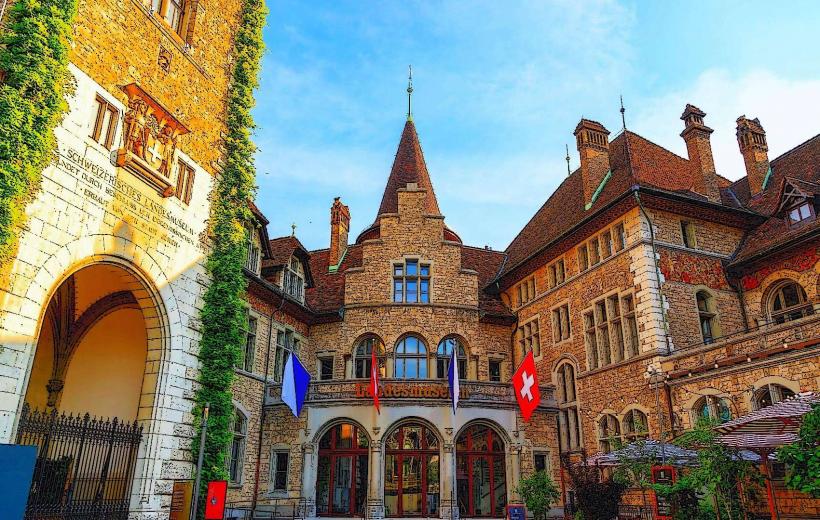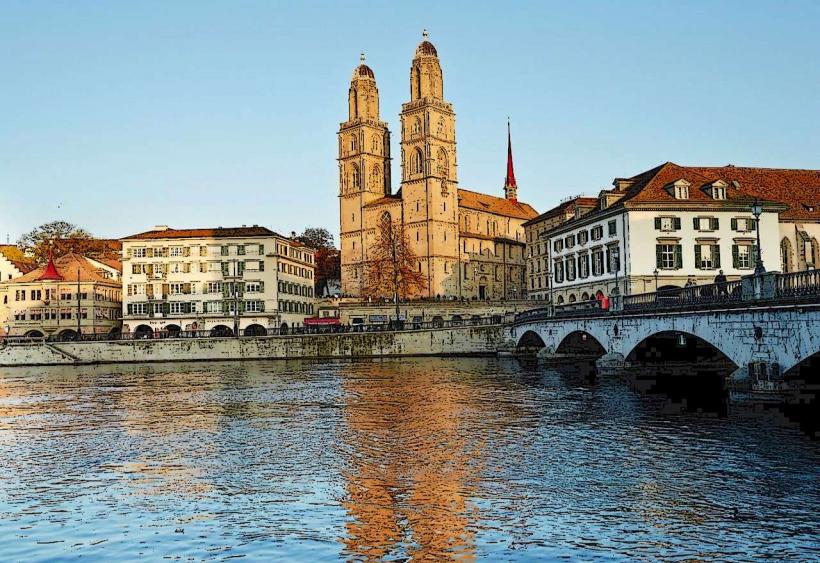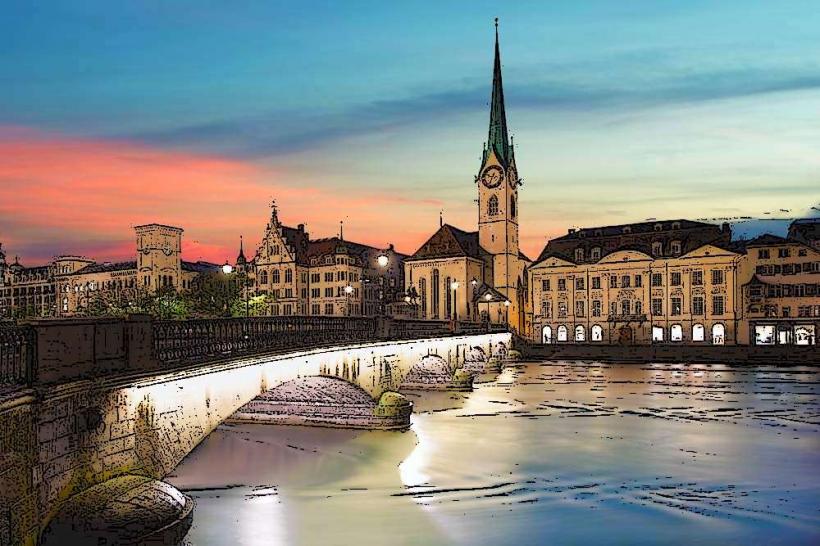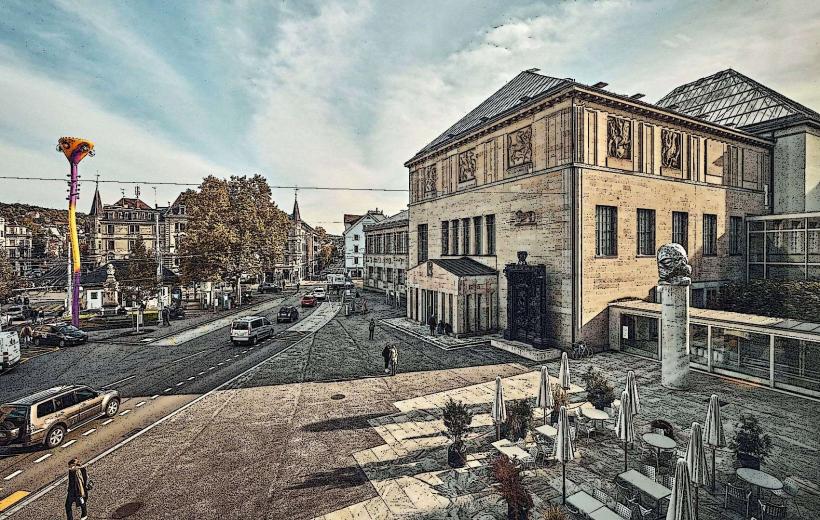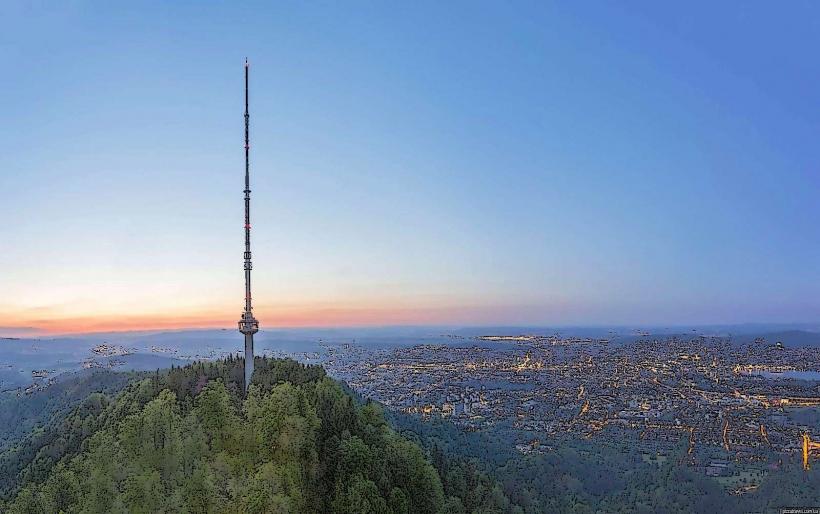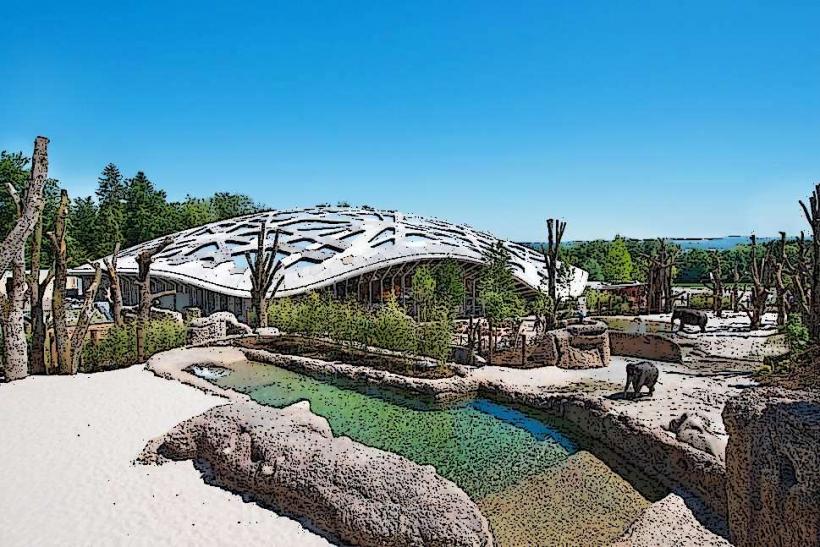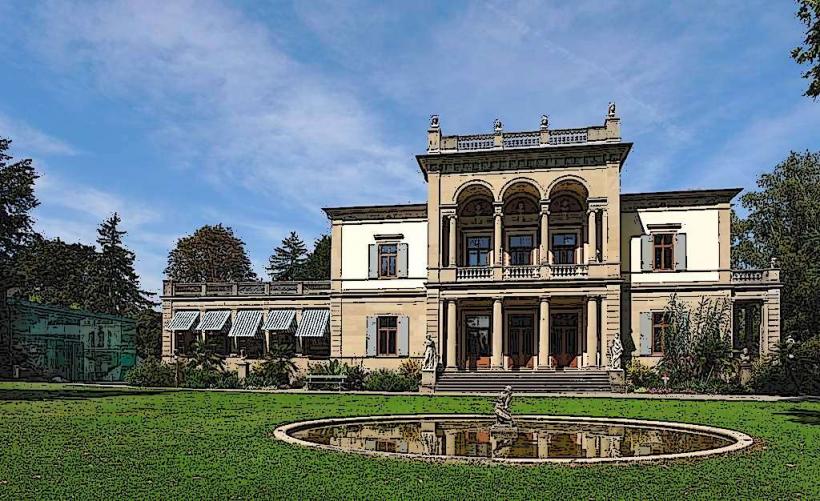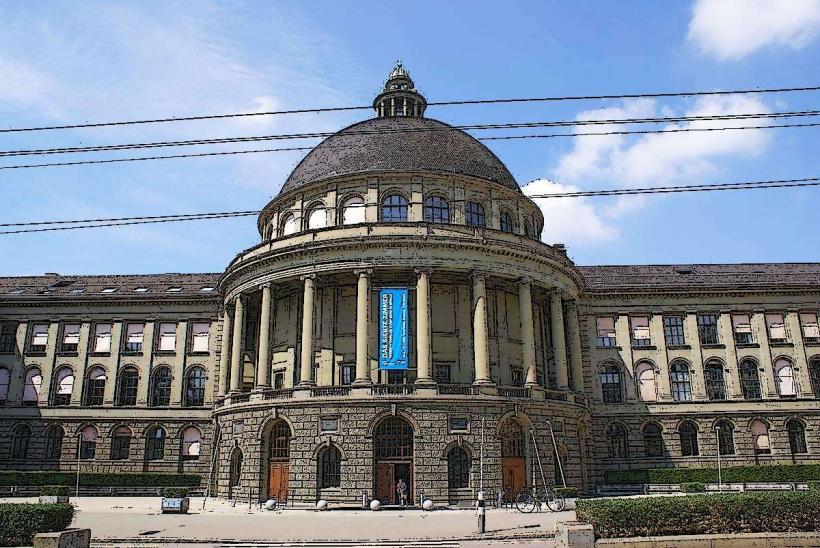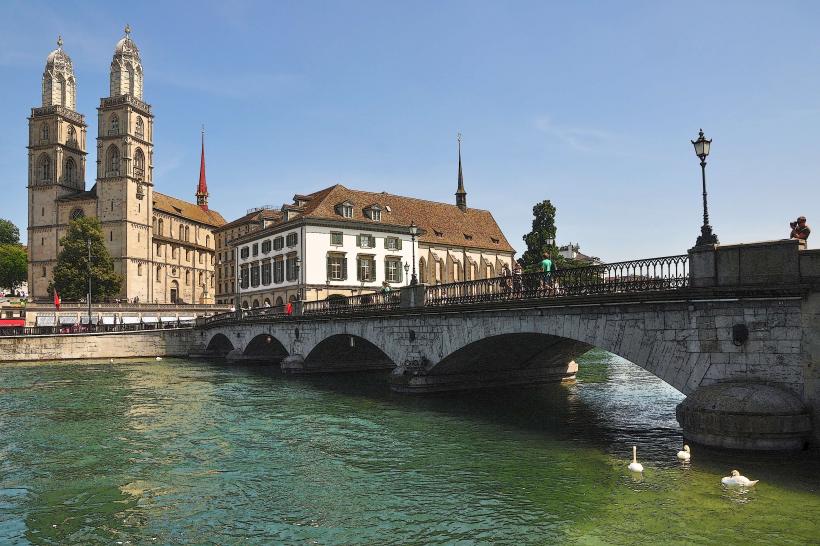Information
Landmark: Pavillon Le CorbusierCity: Zurich
Country: Switzerland
Continent: Europe
Pavillon Le Corbusier, Zurich, Switzerland, Europe
The Pavillon Le Corbusier is an architectural museum and "walk-in sculpture" located on the shores of Lake Zurich at Zürichhorn. Completed posthumously in 1967, it is the final work of the Swiss-French architect Le Corbusier and represents a significant departure from his characteristic use of raw concrete.
Visual Characteristics
The pavilion is a vibrant, multi-colored structure defined by a modular steel frame and glass walls. Its most striking feature is a massive, free-floating steel canopy (the "umbrella") that shelters the building from rain and sun. The exterior consists of 22,000 bolts and numerous enamel panels in primary colors (red, blue, yellow, green) and white, arranged according to Le Corbusier's "Polychromie Architecturale" system. The interior features wood-paneled walls, a concrete ramp, and a rooftop terrace with views of the lake.
Location & Access Logistics
Address: Höschgasse 8, 8008 Zurich.
Access: Situated in the Seefeld district, it is a 20-minute walk from Bellevue or accessible via Tram 2 or 4 (stop: Höschgasse) and Bus 33. It is also reachable by the Zurichsee-Schifffahrtsgesellschaft (ZSG) boats.
Parking: No dedicated on-site parking is available.
Historical & Ecological Origin
The project was commissioned and financed by the Zurich-based interior designer and gallery owner Heidi Weber in 1960. Le Corbusier designed it as a "Maison de l'Homme" (House of Man) to synthesize his theories on art, architecture, and life. Construction began in 1964, but Le Corbusier died in 1965 before its completion. Following a major restoration in 2019, the building passed from the Weber family to the City of Zurich. It is situated within a landscaped park area adjacent to the Chinese Garden.
Key Highlights & Activities
Architectural Promenade: A carefully designed path through the building's levels, intended to set the scene for the architecture.
The Modulor: The entire building is scaled according to Le Corbusier’s anthropometric proportion system.
Exhibitions: Operated by the Museum für Gestaltung Zürich, the pavilion hosts temporary exhibitions and workshops related to Le Corbusier’s broad oeuvre, including furniture, paintings, and sculptures.
Roof Terrace: Accessible via the ramp, providing an elevated perspective of the surrounding parkland and lake.
Infrastructure & Amenities
The museum includes a small shop but no catering facilities (though several cafes are nearby in the Seefeld district). Lockers are available for small bags, but large luggage is not permitted. Due to its historic, landmark-protected construction, the pavilion is only partially wheelchair accessible; the upper floors and certain segments may be difficult to reach for those with limited mobility.
Best Time to Visit
The pavilion is a seasonal museum, typically open only from late April to November. As of 2026, it is scheduled to reopen for the season on April 17, 2026. It is closed during the winter months because the upper floors are unheated. Admission is generally free for visitors under 20 and on Thursday evenings after 17:00.
Facts & Legends
The Only Steel Building: Despite Le Corbusier's fame as a pioneer of reinforced concrete, this is the only building he ever constructed entirely of steel and glass.
The Umbrella First: In a reversal of standard construction, the 40-ton steel roof was prefabricated and craned into position first to protect the rest of the construction process.
The Weber Conflict: For 50 years, the site was known as the "Centre Le Corbusier – Heidi Weber Museum." A naming dispute occurred when the city took ownership in 2014, leading to its current name.
Nearby Landmarks
Chinese Garden (Chinagarten) – 0.15 km South
Zurichhorn Park – Adjacent
Lake Zurich Promenade – 0.1 km West
Botanical Garden of the University of Zurich – 1.2 km Northeast
Zurich Opera House – 1.3 km North

